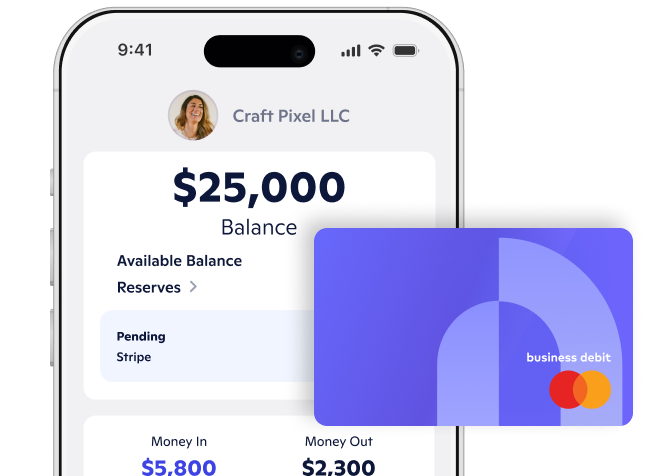
f there’s anything we’ve learned from when the covid-19 pandemic reared its ugly head in early 2020, it’s that small businesses need to adapt to changing conditions to keep afloat (and ideally, thrive). Sure, you may have a useful and unique product or service, but if you don’t make it easy for your customers to keep coming back, you’ll close your doors faster than you want. What we’re getting at is that putting your customers at the center of their experience with your brand is key. Think about the realtors who offered slick virtual tours of homes, leading to a higher likelihood of properties sold, or enthusiastic fans of Etsy sellers who ship items fast. In other words, creating a high-quality customer experience will be what makes or breaks your business. That means your core business operations need to integrate values and tactics that truly care about their customers. While there’s no one-size-fits-all formula to be successful, there are several commonalities that can increase your chances of success. Let’s take a look at a few ways you can put customers at the center of your small business.
Integrate Feedback from Customers
To show your customers you’re listening to them, look at what they’ve been saying about your brand. Looking at positive feedback is great to see what’s working well — you can maintain these tactics for now. However, for any critical comments, see whether they’re valid. Acknowledge these comments to the people who sent them, and if relevant, find a way to integrate the feedback into your business. For instance, if you receive numerous comments about why your small business doesn’t respond to questions on a certain social media profile, you can communicate how often someone will check the account or find a way to respond faster. In the same vein, encouraging customer feedback shows you want to listen for ways to continually improve the way you run your small business. The more people feel they’re heard, the more likely they’ll stick around.
Take Care of Your Employees
How will you ensure you provide the best customer experience if your employees are overworked and tired? Ensuring your employees are satisfied with their jobs will directly impact customer experience. That’s because if an employee doesn’t care about their work, their lack of desire to help may result in poor customer service. You can’t expect your employees to care about your business — no matter how great the mission is — if you don’t make it a priority to care about them. To start, look critically at how your business currently treats its employees. Is it hard for them to ask for time off? Do you consistently solicit feedback from your employees and take them seriously? Or have you given thoughtful gifts or incentives to show your appreciation? The exact systems you’ll integrate will depend on your business — you can start small. For instance, if you can’t afford to give hefty bonuses just yet, you can purchase gifts or arrange an extra day off for employees after federal holidays. If your employees see that you’re making a genuine effort, they’re more than likely to cut you some slack.
Celebrate Success Stories from Customers
Recognizing how your customers have used your product or service successfully achieves a few goals. First, it shows that you’re watching what your customers are doing and you’re rooting for their success — who wouldn’t want that? It shows you care about more than how much profit your small business churns. It also showcases your small business to potential customers by highlighting any impressive results fueled by real-world stories. However, you publish content (like a video), it allows them to see how you’re committed to your customers and why yours is better than others in the space. Take some time to think through how you plan on researching, creating, publishing, and promoting customer case studies. Don’t forget to focus on the customer and how they’ve been successful using your product or service.
Create an Integrated Customer Service Strategy
Part of why many customers are frustrated with larger companies is because they’re more likely to be transferred from one department to another when trying to deal with an issue. You as a small business owner have the advantage of providing more personalized help. At the heart of customer success is being able to resolve their problems and answer questions — customers don’t want to wade through tons of options to get what they need. Make sure all members of your team are trained in how to answer common questions customers have and focus on creating a personalized experience, no matter what their job title may be. Using solutions such as customer relationship management (CRM) tools or somewhere where records of customer interactions are centrally housed will ensure that everyone can provide the best experience possible.
Define What Customer Success Means For Your Business
Many businesses confuse the terms customer service with customer success. While they’re related, customer service focuses on systems destined to answer customer questions and concerns, whereas customer success is an overarching tactic to ensure long-term success. Customer service focuses on the here and now, but customer success is a proactive solution designed to enhance your business reputation, which puts your customer at the center of your focus. Focusing on both is key to putting the customer at the center of your business. That means you’ll need to clearly define what both means to your business, defining goals specific to each, and how you plan on reaching them. Running a small business means you can’t afford to take for granted the types of customer relationships you have. The best way to ensure yours are strong is to consistently solicit feedback, create trust, and build relationship-building strategies into your marketing strategies. It may seem like a lot of work to offer personalized experiences, but the effort will be worth it.






